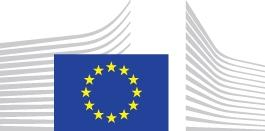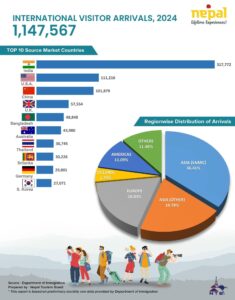Nepalese airlines banned from flying to European Union countries

Brussels , Dec. 5 – The European Commission on Thursday put all Nepal airlines on its safety blacklist, banning them from flying to the EU, and said the Philippines, Sudan and Zambia were making improvements.
The Commissioner cited progress in several countries, among them the Philippines, Sudan and Zambia although for the moment they remain on the list, barring them from flights to, or within the 28 EU member countries.
No airlines from Nepal fly to the EU, but a Commission spokeswoman said that with the country, an important tourist destination, on the list anyone booking a flight with one of its airlines would see the EU notification of its status.
EU operators and travel agents will also have to inform prospective passengers who can claim repayment if they have already booked a flight, the Commission said.
The current EU safety list covers 21 countries and some 295 airlines — Afghanistan, Angola, Benin, Republic of the Congo, the Democratic Republic of the Congo, Djibouti, Equatorial Guinea, Eritrea, Gabon, Indonesia, Kazakhstan, Kyrgyzstan, Liberia, Mozambique, Nepal, Philippines, Sierra Leone, Sao Tome and Principe, Sudan, Swaziland and Zambia.
There are some exemptions in the listed countries and some airlines are also allowed into the EU but under strict conditions.
The European Commission has updated for the 22nd time the European list of airlines subject to an operating ban or operational restrictions within the European Union, better known as “the EU air safety list”. On the basis of safety information from various sources and a hearing both with the Nepalese aviation authorities as well as with a number of Nepalese carriers, the Commission decided to put all airlines from Nepal on the EU air safety list.
Siim Kallas, Commission Vice-President responsible for transport, said: “The current safety situation in Nepal does not leave us any other choice than to put all of its carriers on the EU air safety list. We do hope that this ban will help the aviation authorities to improve aviation safety. I have already asked the European Aviation Safety Agency to prepare an aviation safety assistance project for Nepal. On the positive side, I am happy to note further safety progress, particularly in the Philippines, Sudan and Zambia. These countries, as well as a number of other countries where safety is gradually improving, remain for the moment on the list, but I am confident that positive decisions are in the pipeline if things keep moving in the right direction.”
As a consequence of the ban on Nepalese carriers, they are prevented from flying into or within the Union. Also, European operators and travel agents will need to inform European travellers, who will have a right to reimbursement if they had booked a seat on a Nepalese carrier as part of a journey to Nepal, and decide not to use it.
Consultations were also held with the civil aviation authorities of Libya. The EU Air Safety Committee noted that progress continues to be made, but agreed with the Libyan civil aviation authorities that it remains necessary to maintain the voluntary restrictions not to fly to the EU, which are applied since the Libyan revolution to all airlines licensed in Libya. The implementation of these restrictions will remain under close monitoring by the Commission and the EU Air Safety Committee.
Further technical updates to the EU air safety list were made, due to the removal of some airlines that ceased to exist and the addition of new ones recently created in a number of banned countries: Kyrgyzstan, Kazakhstan, Indonesia and Mozambique.
The Commission decision is based on the unanimous opinion of the EU Air Safety Committee, which met from 19 until 21 November 2013. The EU Air Safety Committee consists of aviation safety experts from the Commission, from each of the 28 Member States of the Union, as well as from Norway, Iceland, Switzerland, and the European Aviation Safety Agency (EASA).
The Commission decision also received a positive opinion from the European Parliament and the Council of Ministers according to EU press release .














